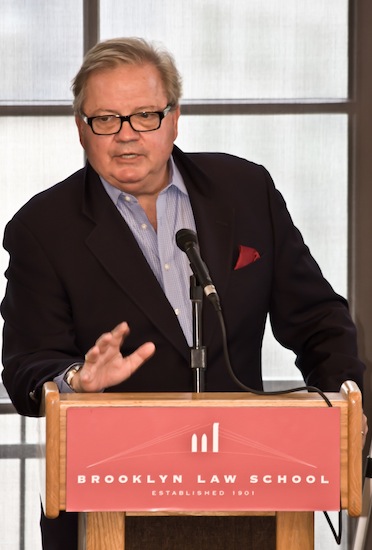Law schools expand clinical experience

Allard_Nick.jpg
In the fall of 2012, New York became the first state to require lawyers to perform 50 hours of pro bono work as a condition for getting a license. The new rule, which takes effect in 2015, aims to help fill the legal needs of New York’s poor, and will apply to those sitting for the 2015 New York State bar exam.
The pro bono mandate can be completed with, for example, internships at public service organizations. Students can also fulfill the mandate by participating in a variety of clinics provided by their respective law schools.
“The 50-hour pro bono requirement is easily met by Brooklyn Law School’s extensive clinics and course offerings,” Eric Riley, director of communications at BLS, told the Brooklyn Daily Eagle.
